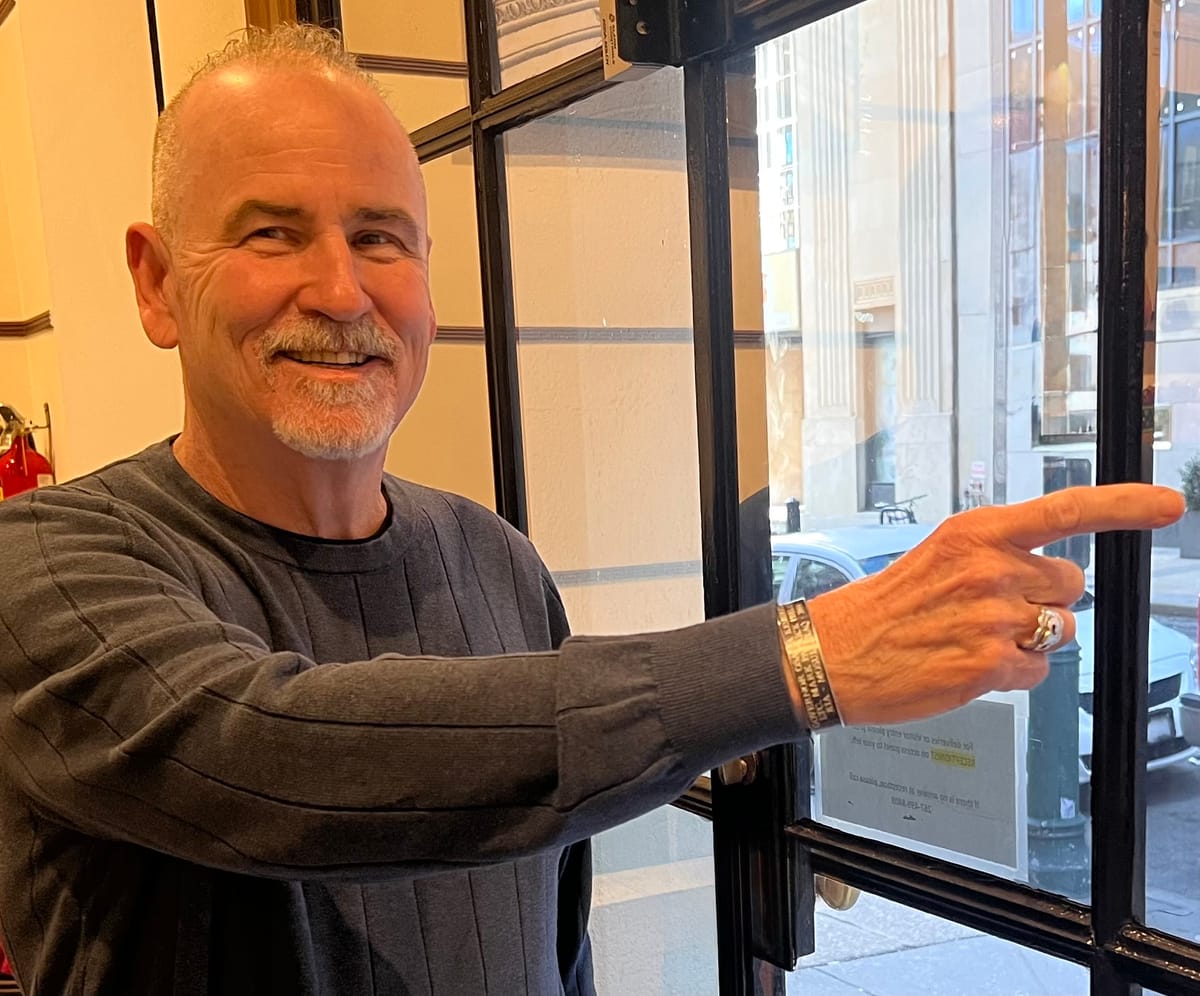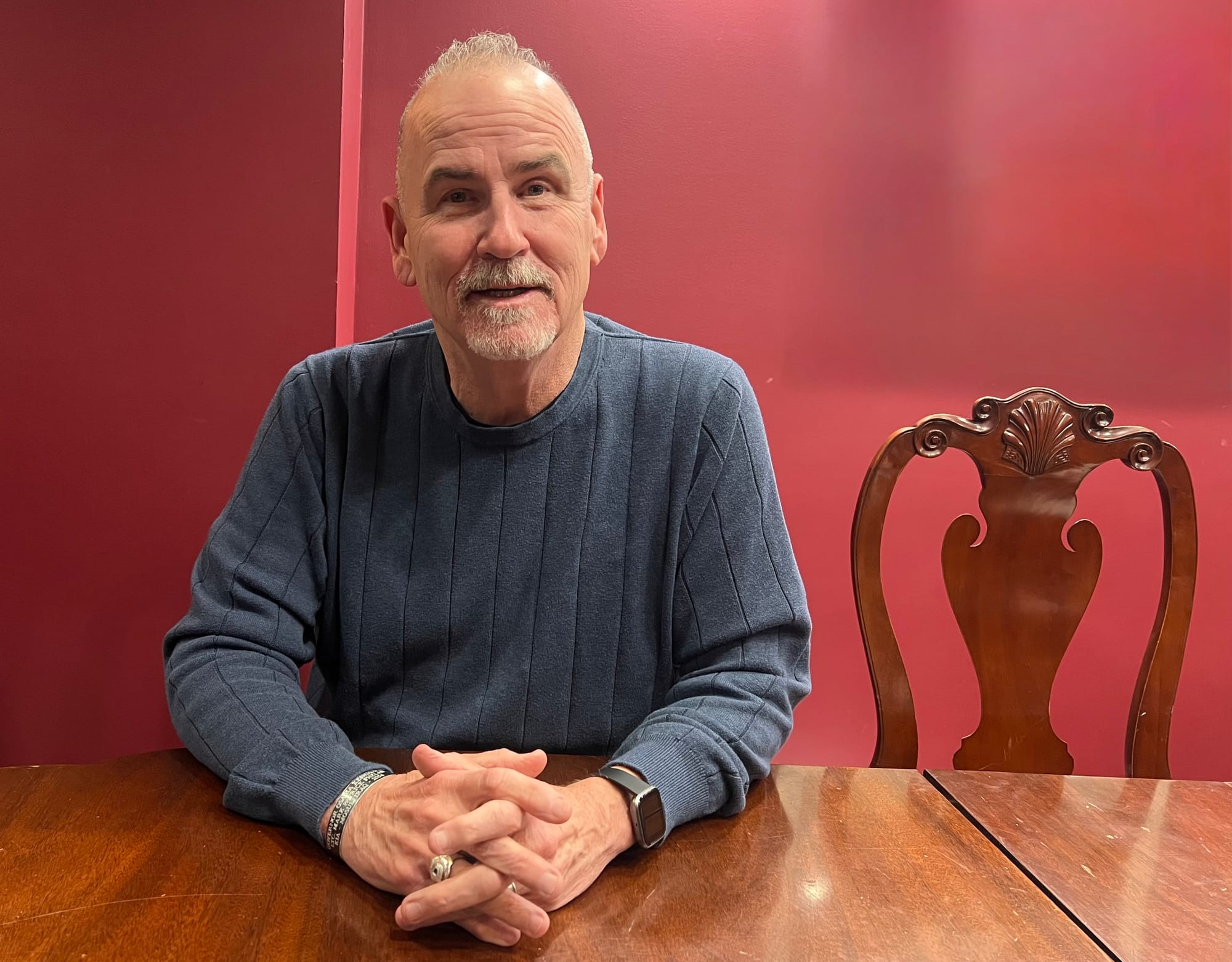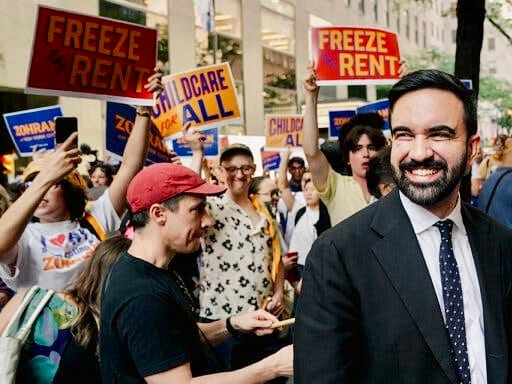D.A. Larry Krasner is no reformer, says Judge Dugan
“Larry always says, ‘F around and find out’ when he’s talking about Trump. How about ‘F around and find out’ to the people running around here with AK 47s?”

One line of Patrick Dugan’s bio jumps off the page: “Wiz witout and hates the Dallas Cowboys! Go Birds!”
That line — mixed among various educational, military, and judicial honors — indelibly birthmarks Dugan as a Philadelphian. (If you are not from here, it means he takes his cheesesteak with Cheez Whiz and without onions.) The Eagles are as much of his fiber as his gray mustache and Van Dyke.
Over a long life of public service, first wearing the camouflage uniform of a U.S. Army paratrooper, and then the black robe of a Municipal Court judge, he’s now ready to try on the dark dress suit of the District Attorney of Philadelphia.
One thing stands in his way — two-term D.A. incumbent Larry Krasner, who will face Dugan in the May 20 Democratic primary. As the incumbent, Krasner has a natural advantage, but Dugan says he will do to Krasner what the Eagles did to the Kansas City Chiefs: “Deny him a three-peat.” But for that to happen, he says, “The silent majority must come out to vote on May 20th.”
Dugan will goose them into action by attacking “Let ‘em Loose Larry’s” natural disadvantage — his low-prosecution record as D.A.
A 64-year-old father of six (and grandfather of 12) who lives in the Chalfont section of the Northeast (his wife Nancy is a retired Philadelphia police officer), Dugan says Krasner is not a reformer, “he is a non prosecutor.”
Larry Platt, progressive editor of the Public Citizen news site, reported last month that under Krasner, “the percentage of gun cases withdrawn or dismissed has ballooned to nearly 50% — up 67% over his predecessor.”
More of Krasner’s prosecution phobia in a moment.
Dugan says he will “hold defendants accountable. I would charge crimes based on the evidence, not on a theory or an ideology.”
[Author’s note: Under normal circumstances, I would seek comment from Krasner. However, since he never responds to my requests for information, he has cancelled that courtesy.]
Krasner might be the best-known of the so-called “restorative justice” D.A.s that started cropping up about a decade ago, many funded by left-wing billionaire George Soros, who put almost $1.7 million into Krasner’s first run eight years ago.
In Philadelphia, primaries determine the winner because Democrats have a 7-1 registration edge over Republicans. In the May 2021 primary Krasner beat former assistant district attorney Carlos Vega 2-1, with 103,195 votes. In the general election, he won with 155,102 votes against Republican lawyer Chuck Peruto, who got 60,304 votes.
Off-year elections, such as D.A., are low turnout. Krasner was elected by only 15% of eligible voters, which was more about apathy than a mandate. As D.A., he set about dismantling the criminal justice system, turning it into an experiment in woke social work.
But that was then. Now, however, the bloom has faded from some of the more notorious “restorative justice” D.A.s who refused to enforce the law.
San Franciscans recalled progressive D.A. Chesa Boudin in 2022. Last year, Los Angelinos voted D.A. George Gascon out of office. In Oakland, “reformer” Pamela Price was kicked to the curb in a recall.
One animating feature in these cases was a practice by the D.A.s to define crime down, coupled with an unwillingness to send criminals to jail, even as crime rates soared, rattling citizens.
In Philadelphia, homicide rates have fallen in the past year, but many other crimes, the ones that touch more citizens than murder, have gone up.
Ralph Cipriano is a one-time Philadelphia Inquirer reporter who runs the Big Trial blog that scrutinizes Krasner like a hungry hawk.
Here is some recent Cipriano reporting:
“While Krasner was D.A., the murder rate jumped from 315 in 2017, the year before he took office, to an all-time high of 562 in 2021, an increase of 78%.
“During Krasner’s tenure, more all-time highs were set for non-fatal shootings, carjackings and retail thefts,” Cipriano reports.
“After Krasner reduced the crime of retail theft of less than $500 to a summary offense, the equivalent of a traffic ticket,“ retail theft more than doubled.
Dugan agrees with Platt, who writes that Dugan is the real reformer, the North Star of restorative justice.
Just what the hell is restorative justice?, I ask the judge.

It means restoring a person to having a regular, productive life, but, he adds, only after he has been punished and expressed contrition.
Krasner, who spent most of his life as an anti-cop criminal lawyer, forgoes the punishment part.
In a very recent case, Krasner wanted to divert the case of personal injury lawyer Leonard Hill, who shot a guy, into a program that would have meant no jail time.
A shooting, in a city that is plagued with gun crimes Krasner routinely tries to plead down. A dumbfounded judge blocked Krasner, who also has a lousy record of turning his back on victims’ families. He barely survived an attempt to impeach him, but he got an earful from critics.
An interesting thing. At Krasner’s announcement for re-election, he didn’t mention Dugan once. Instead, he hammered Donald J. Trump, who’s not on the ballot. Krasner took no questions from the press. Not unusual for him.
Dugan says, “Larry always says, ‘F around and find out’ when he’s talking about Trump. How about ‘F around and find out’ to the people running around here with AK 47s and shooting people on our streets?”
—-
Dugan was born in Fairmount, reared in Frankford, the grandson of Joseph Dugan a World War I veteran and Philly firefighter who lost his life months after on-the-job injuries. Because his death wasn’t considered directly line-of-duty, Joseph’s widow was left to raise eight children with no city pension.
Patrick’s parents divorced when he was very young. He was raised, with his four siblings, by his mother, Jacqueline Kane, a pie filler at TastyKake — until she got a degree in drug and alcohol counseling. She remains his hero to this day.
He enlisted in the Army Reserve as a teenager in 1981, then became an active-duty paratrooper with the 82nd Airborne. His specialty was M60 gunner, serving in Panama and South Korea. (His father, James, is a Marine Vietnam veteran.)
Dugan used the GI Bill to help finance his college education. He earned a law degree from Rutgers, after which he practiced law for more than a decade, focusing on children and the poor.
In 2003, he was captured by the story of a young Army female supply clerk who was kidnapped in Iraq, with 11 other Americans dying in an ambush.
“If kids like Jessica Lynch were going into battle, I felt I had to do my part,” Dugan says. He decided to re-enlist.
“It took a while to get in because being a 40, 43-year-old who was out for, you know, a long time wasn't very easy to get back in the military. But I was able to convince a recruiter and then the doctor, and they allowed me back in.” Basically, he fought to put his life on the line.
He was sent to Mosul, Iraq, as part of a civil affairs unit, later receiving a commission and was assigned to Bagram, Afghanistan, as an Army lawyer in JAG — Judge Advocate General. He retired as a captain.
“My time in Iraq was super rewarding and horrific,” he says, describing himself as “the guy with the weapon, the body armor, and the Hawaiian shirt.
Having done his bit, again, upon return to civilian life, Gov. Ed Rendell appointed him to Philadelphia Municipal Court, where he eventually rose to President Judge.
While there, he created Veterans Court, to deal with people whose problems may have been service connected.
“It’s not meant to give them a slap on the wrist,” he says. “In my court, we actually hold veterans to a higher standard of behavior. But I may insist they go to therapy instead of serving time.” The recidivism rate is under 10%, he says.
Krasner has a bad record on diversions, says Platt. “Less than 6% of cases were diverted the last four years,” he writes, “compared to 17% under the previous DA.”
Dugan says Krasner is not much interested in special courts, such Eviction Diversion Court, Mental Health Court, DUI Treatment Court, and Dawn’s Court, that deals with sex workers.
Dugan grimaces.
“Larry pretty much has stopped any of that because he doesn't believe in prosecuting that,” says Dugan, who added that many prostitutes wanted help in getting out of that life.
What are his chances, really?
Well, out of the gate he got the endorsement of the powerful building trades unions, and has raised more moolah than Krasner.
One question is whether Soros will sit quietly on the sidelines or throw some heavy cash at Krasner. Another question, should that happen: Will the world’s richest man, Elon Musk, who has threatened to attack “social action D.A.s,” pour money on Dugan?
The entrance of billionaires into a local race is a curious sideline, but the biggest question is whether Dugan can beat the low-turnout malaise that usually condemns challengers.
I’m rooting for the judge to stop a Krasner three-peat.



